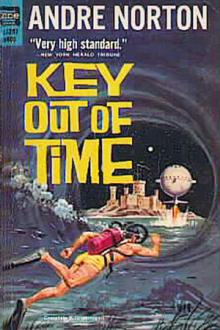Sanders of the River by Edgar Wallace (robert munsch read aloud .TXT) 📕

Read free book «Sanders of the River by Edgar Wallace (robert munsch read aloud .TXT) 📕» - read online or download for free at americanlibrarybooks.com
- Author: Edgar Wallace
Read book online «Sanders of the River by Edgar Wallace (robert munsch read aloud .TXT) 📕». Author - Edgar Wallace
The Valley of Happy Dreams! That would make a good story if Mainward could write; only, unfortunately, he could not write. He could sign things, sign his name "three months after date pay to the order of——" He could sign other people's names; he groaned, and winced at the thought.
But here was a forest where bad thoughts became good, and, God knows, his mind was ill-furnished. He wanted peace and sleep and happiness—he greatly desired happiness. Now suppose "Fairy Lane" had won the Wokingham Stakes? It had not, of course (he winced again at the bad memory), but suppose it had? Suppose he could have found a friend who would have lent him £16,000, or even if Ethel——
"Master," said Abiboo's voice, "dem puck-a-puck, him lib for come."
"Eh, what's that?"
Mainward turned almost savagely on the man.
"Puck-a-puck—you hear'um?"
But the sick man could not hear the smack of the Zaire's stern wheel, as the little boat breasted the downward rush of the river—he was surprised to see that it was dawn, and grudgingly admitted to himself that he had slept. He closed his eyes again and had a strange dream. The principal figure was a small, tanned, clean-shaven man in a white helmet, who wore a dingy yellow overcoat over his pyjamas.
"How are you feeling?" said the stranger.
"Rotten bad," growled Mainward, "especially about Ethel; don't you think it was pretty low down of her to lead me on to believe she was awfully fond of me, and then at the last minute to chuck me?"
"Shocking," said the strange, white man gravely, "but put her out of your mind just now; she isn't worth troubling about. What do you say to this?"
He held up a small, greenish pellet between his forefinger and thumb, and Mainward laughed weakly.
"Oh, rot!" he chuckled faintly. "You're one of those Forest of Happy Dreams Johnnies; what's that? A love philtre?" He was hysterically amused at the witticism.
Sanders nodded.
"Love or life, it's all one," he said, but apparently unamused. "Swallow it!"
Mainward giggled and obeyed.
"And now," said the stranger—this was six hours later—"the best thing you can do is to let my boys put you on my steamer and take you down river."
Mainward shook his head. He had awakened irritable and lamentably weak.
"My dear chap, it's awfully kind of you to have come—by the way, I suppose you are a doctor?"
Sanders shook his head.
"On the contrary, I am the Commissioner of this district," he said flippantly—"but you were saying——"
"I want to stay here—it's devilish pretty."
"Devilish is the very adjective I should have used—my dear man, this is the plague spot of the Congo; it's the home of every death-dealing fly and bug in Africa."
He waved his hand to the hidden vistas of fresh green glades, of gorgeous creepers shown in the light of the camp fires.
"Look at the grass," he said; "it's homeland grass—that's the seductive part of it; I nearly camped here myself. Come, my friend, let me take you to my camp."
Mainward shook his head obstinately.
"I'm obliged, but I'll stay here for a day or so. I want to try the supernatural effects of this pleasant place," he said with a weary smile. "I've got so many thoughts that need treatment."
"Look here," said Sanders roughly, "you know jolly well how this forest got its name; it is called Happy Dreams because it's impregnated with fever, and with every disease from beri-beri to sleeping sickness. You don't wake from the dreams you dream here. Man, I know this country, and you're a newcomer; you've trekked here because you wanted to get away from life and start all over again."
"I beg your pardon." Mainward's face flushed; and he spoke a little stiffly.
"Oh, I know all about you—didn't I tell you I was the Commissioner? I was in England when things were going rocky with you, and I've read the rest in the papers I get from time to time. But all that is nothing to me. I'm here to help you start fair. If you had wanted to commit suicide, why come to Africa to do it? Be sensible and shift your camp; I'll send my steamer back for your men. Will you come?"
"No," said Mainward sulkily. "I don't want to, I'm not keen; besides, I'm not fit to travel."
Here was an argument which Sanders could not answer. He was none too sure upon that point himself, and he hesitated before he spoke again.
"Very well," he said at length, "suppose you stay another day to give you a chance to pull yourself together. I'll come along to-morrow with a tip-top invalid chair for you—is it a bet?"
Mainward held out his shaking hand, and the ghost of a smile puckered the corners of his eyes. "It's a bet," he said.
He watched the Commissioner walk through the camp, speaking to one man after another in a strange tongue. A singular, masterful man this, thought Mainward. Would he have mastered Ethel? He watched the stranger with curious eyes, and noted how his own lazy devils of carriers jumped at his word.
"Good-night," said Sanders' voice; and Mainward looked up. "You must take another of these pellets, and to-morrow you'll be as fit as a donkey-engine. I've got to get back to my camp to-night, or I shall find half my stores stolen in the morning; but if you'd rather I stopped——"
"No, no," replied the other hastily. He wanted to be alone. He had lots of matters to settle with himself. There was the question of Ethel, for instance.
"You won't forget to take the tabloid?"
"No. I say, I'm awfully obliged to you for coming. You've been a good white citizen."
Sanders smiled. "Don't talk nonsense!" he said good-humouredly. "This is all brotherly love. White to white, and kin to kin, don't you know? We're all alone here, and there isn't a man of our colour within five hundred miles. Good-night, and please take the tabloid——"
Mainward lay listening to the noise of departure. He thought he heard a little bell tingle. That must be for the engines. Then he heard the puck-a-puck of the wheel—so that was how the steamer got its name.
Abiboo came with some milk. "You take um medicine, master?" he inquired.
"I take um," murmured Mainward; but the green tabloid was underneath his pillow.
Then there began to steal over him a curious sensation of content. He did not analyse it down to its first cause. He had had sufficient introspective exercise for one day. It came to him as a pleasant shock to realise that he was happy.
He opened his eyes and looked round.
His bed was laid in the open, and he drew aside the curtains of his net to get a better view.
A little man was walking briskly toward him along the velvet stretch of grass that sloped down from the glade, and Mainward whistled.
"Atty," he gasped. "By all that's wonderful."
Atty, indeed, it was: the same wizened Atty as of yore; but no longer pulling the long face to which Mainward had been accustomed. The little man was in his white riding-breeches, his diminutive top-boots were splashed with mud, and on the crimson of his silk jacket there was evidence of a hard race. He touched his cap jerkily with his whip, and shifted the burden of the racing saddle he carried to the other arm.
"Why, Atty," said Mainward, with a smile, "what on earth are you doing here?"
"It's a short way to the jockey's room, sir," said the little man. "I've just weighed in. I thought the Fairy would do it, sir, and she did."
Mainward nodded wisely. "I knew she would, too," he said.
"Did she give you a smooth ride?"
The jockey grinned again. "She never does that," he said. "But she ran gamely enough. Coming up out of the Dip, she hung a little, but I showed her the whip, and she came on as straight as a die. I thought once the Stalk would beat us—I got shut in, but I pulled her round, and we were never in difficulties. I could have won by ten lengths," said Atty.
"You could have won by ten lengths," repeated Mainward in wonder. "Well, you've done me a good turn, Atty. This win will get me out of one of the biggest holes that ever a reckless man tumbled into—I shall not forget you, Atty."
"I'm sure you won't, sir," said the little jockey gratefully; "if you'll excuse me now, sir——"
Mainward nodded and watched him, as he moved quickly through the trees.
There were several people in the glade now, and Mainward looked down ruefully at his soiled duck suit. "What an ass I was to come like this," he muttered in his annoyance. "I might have known that I should have met all these people."
There was one he did not wish to see; and as soon as he sighted Venn, with his shy eyes and his big nose, Mainward endeavoured to slip back out of observation. But Venn saw him, and came tumbling through the trees, with his big, flabby hand extended and his dull eyes aglow.
"Hullo, hullo!" he grinned, "been looking for you."
Mainward muttered some inconsequent reply. "Rum place to find you, eh?" Venn removed his shining silk hat and mopped his brow with an awesome silk handkerchief.
"But look here, old feller—about that money?"
"Don't worry, my dear man," Mainward interposed easily. "I shall pay you now."
"That ain't what I mean," said the other impetuously; "a few hundred more or less does not count. But you wanted a big sum——"
"And you told me you'd see me——"
"I know, I know," Venn put in hastily; "but that was before Kaffirs started jumpin'. Old feller, you can have it!"
He said this with grotesque emphasis, standing with his legs wide apart, his hat perched on the back of his head, his plump hands dramatically outstretched: and Mainward laughed outright.
"Sixteen thousand?" he asked.
"Or twenty," said the other impressively. "I want to show you——" Somebody called him, and with a hurried apology he went blundering up the green slope, stopping and turning back to indulge in a little dumb show illustrative of his confidence in Mainward and his willingness to oblige.
Mainward was laughing, a low, gurgling laugh of pure enjoyment. Venn, of all people! Venn, with his accursed questions and talk of securities. Well! Well!
Then his merriment ceases, and he winced again, and his heart beat faster and faster, and a curious weakness came over him——
How splendidly cool she looked.
She walked in the clearing, a white, slim figure; he heard the swish of her skirt as she came through the long grass—white, with a green belt all encrusted with gold embroidery. He took in every detail hungrily—the dangling gold ornaments that hung from her belt, the lace collar at her throat, the——
She did not hurry to him, that was not her way.
But in her eyes dawned a gradual tenderness—those dear eyes that dropped before his shyly.
"Ethel!" he whispered, and dared to take her hand.
"Aren't you wonderfully surprised?" she said.
"Ethel! Here!"
"I—I had to come."
She would not look at him, but he saw the pink in her cheek and heard the faltering voice with a wild hope. "I behaved so badly, dear—so very badly."
She hung her head.
"Dear! dear!" he muttered, and groped toward her like a blind man.
She was in his arms, crushed against his breast, the perfume of her presence in his brain.
"I had to come to you." Her hot cheek was against his. "I love you so."
"Me—love me? Do you mean it?" He was tremulous with happiness, and his voice broke—"Dearest."
Her face was upturned to his, her lips so near; he felt her heart beating as furiously as his own. He kissed her—her lips, her eyes, her dear hair——
"O, God, I'm happy!" she sobbed, "so—so happy——"
Sanders sprang ashore just as the sun was rising, and came thoughtfully through the undergrowth to the camp. Abiboo, squatting by the curtained bed, did not rise. Sanders walked to the bed, pulled aside the mosquito netting, and bent over the man who lay there.
Then he drew the curtains again, lit his pipe slowly, and looked down at Abiboo.
"When did he die?" he asked.
"In the dark of the morning, master," said the man.
Sanders nodded slowly. "Why did you not send for me?"
For a moment the squatting figure made no reply, then he rose and stretched himself.
"Master," he said, speaking in Arabic—which is a language which allows of nice distinctions—"this man was happy; he walked in the Forest of Happy Thoughts; why should I call him back to a land where there





Comments (0)